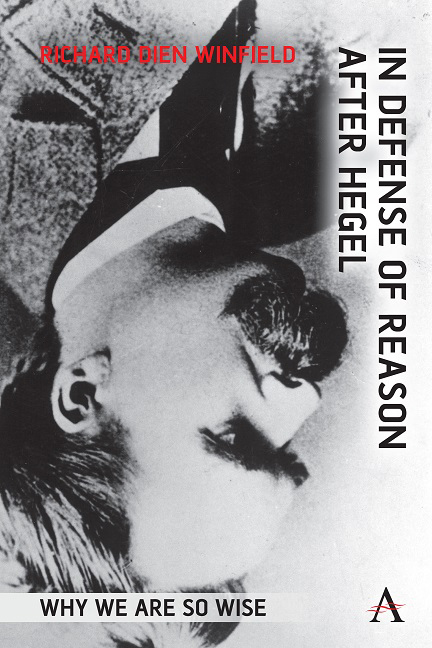Book contents
- Frontmatter
- Contents
- Acknowledgments
- Introduction
- 1 Why We Are So Wise: Hegelian Reflections on whether Reason Can Be Enhanced
- 2 Self-Determination in Logic and Reality
- 3 Hegel’s Overcoming of the Overcoming of Metaphysics
- 4 On Contradiction: Hegel versus Aristotle, Sextus Empiricus, and Kant
- 5 Overcoming Actuality: How Hegel Frees Us from the Prison of Modality
- 6 Time and Reason
- 7 Hegel and the Problem of Consciousness
- 8 Hegel and the Origin of Language
- 9 The Logic of Right
- 10 A Dream Deferred: From the US Constitution to the Universal Declaration of Human Rights
- 11 World Spirit on the Campaign Trail in Georgia: Can the Philosophy of Right Be a Guide to Social Reform?
- 12 The Classical Nude and the Limits of Sculpture
- Bibliography
- Index
7 - Hegel and the Problem of Consciousness
Published online by Cambridge University Press: 26 May 2022
- Frontmatter
- Contents
- Acknowledgments
- Introduction
- 1 Why We Are So Wise: Hegelian Reflections on whether Reason Can Be Enhanced
- 2 Self-Determination in Logic and Reality
- 3 Hegel’s Overcoming of the Overcoming of Metaphysics
- 4 On Contradiction: Hegel versus Aristotle, Sextus Empiricus, and Kant
- 5 Overcoming Actuality: How Hegel Frees Us from the Prison of Modality
- 6 Time and Reason
- 7 Hegel and the Problem of Consciousness
- 8 Hegel and the Origin of Language
- 9 The Logic of Right
- 10 A Dream Deferred: From the US Constitution to the Universal Declaration of Human Rights
- 11 World Spirit on the Campaign Trail in Georgia: Can the Philosophy of Right Be a Guide to Social Reform?
- 12 The Classical Nude and the Limits of Sculpture
- Bibliography
- Index
Summary
Philosophy and the Opposition of Consciousness
Hegel announces in the introduction to his Science of Logic that the opposition of consciousness bars the way to philosophy and must be overcome. This is because consciousness treats its mental content as an opposing objectivity from whose given material mind must fill itself in order to arrive at knowledge. If knowing is such as to always confront the given as the underlying standard of truth, it remains doubly conditioned. Such oppositional cognition is relative to the predetermined content that provides it with a determinate subject matter and it is relative to the method or thinking with which it addresses its topic. Since the subject matter is something given confronting knowing, it is different from the cognition employed in its investigation. Such investigation can never account for the knowing it uses, since it always addresses something distinct from how it knows. Accordingly, such investigation must presuppose both the given content of its subject matter and the method by which it is addressed. Philosophy can do neither without forsaking truth for opinion. Therefore, Hegel recognizes, philosophy must abandon confronting a given opposing its cognition and begin without any determinate claims about knowing and the object of knowing.
To do so, philosophy must commence in the element of logic, which overcomes the opposition of consciousness by thinking thinking, where the difference between knowing and its object is eliminated. Logical investigation may seem to start with the preconception of self-thinking thought, but this cannot have any predetermined form or content. Logical investigation must begin without any given procedure or topic, since the logical thinking that is both the method and topic of logical science must be established through the completion of logical inquiry, not taken for granted. At the outset, logical investigation, as well as philosophy itself, is, Hegel notes, but an empty word. Freeing knowing from confrontation with the given, logic's overcoming of the opposition of consciousness inaugurates presuppositionless philosophy.
Any failure to begin inquiry without eliminating the difference between knowing and its object falls into the dilemma of foundational justification, which grounds normative validity in a privileged factor that confers truth, right, or beauty on something different from itself. That privileged foundation cannot meet its own validation standard unless it grounds itself and eliminates the difference between what confers and what possesses validity, the difference defining foundational justification.
- Type
- Chapter
- Information
- In Defense of Reason after HegelWhy We Are So Wise, pp. 103 - 112Publisher: Anthem PressPrint publication year: 2022



